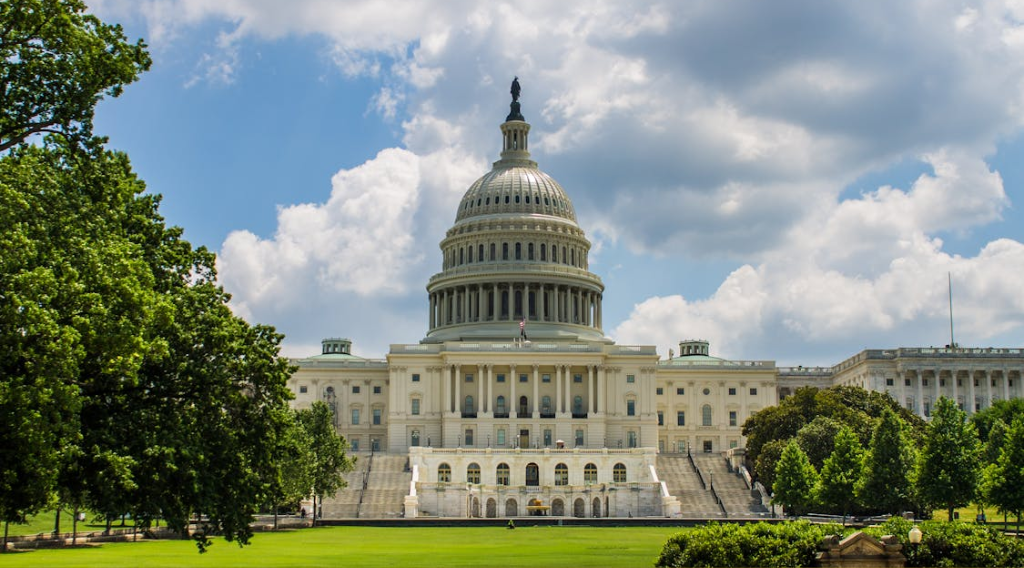 The Carbon Capture Coalition released a factsheet earlier this year on the economic and jobs creation potential in the US from commercializing carbon capture technologies. The factsheet also “details which projects are at risk for delay or cancelation if Congress fails to act on the Coalition’s recent recommendations crafted in response to the economic crisis caused by COVID-19.”
The Carbon Capture Coalition released a factsheet earlier this year on the economic and jobs creation potential in the US from commercializing carbon capture technologies. The factsheet also “details which projects are at risk for delay or cancelation if Congress fails to act on the Coalition’s recent recommendations crafted in response to the economic crisis caused by COVID-19.”
I interviewed my colleague, Jessie Stolark, public policy & member relations manager of the Coalition (which GPI convenes), to learn about how this factsheet can help inform decision makers as they consider both short-term policies to respond to the economic crisis, as well as longer-term policies to build a commercial-scale carbon capture industry.
The factsheet includes key data on carbon capture projects and their economic and jobs creation potential, drawing on analysis and research from the Rhodium Group and the Global CCS Institute, the Clean Air Task Force’s carbon capture and utilization project tracker, conversations with Coalition participants, and GPI project mapping and modeling efforts.
Q: How is the economic crisis impacting carbon capture projects—and why is that important for US decision makers to address?
A: Overall, the International Energy Agency estimates that global investments in energy technologies will fall by 20 percent in 2020, which is a massive decline.
There are about 30 carbon capture projects in development in the US. If these projects become operational, that would triple the country’s current deployment of carbon capture projects.
Not only does carbon capture represent major economic and job potential in the US, carbon capture also has an essential role as part of the broad suite of zero- and low-carbon technologies required to meet global climate targets, particularly in industries that are otherwise difficult to decarbonize.
The International Energy Agency estimates that the global carbon capture industry will need to scale-up to over 2,000 facilities capturing 2.8 gigatons of CO2 per year to limit warming to 2°C. Currently, 20 large-scale facilities are operating globally (capturing about 40 million tons of CO2 per year), with 13 commercial-scale facilities in the US.

Source: Carbon Capture Coalition, “Carbon Capture Jobs and Project Development Status,” June 2020.
Already, potential carbon capture projects face a challenging financial environment due to their long project development timeline. The challenges to project development, coupled with the current economic conditions, which have created shrinking tax equity markets, will further limit access to project investment on favorable terms.
Congress can play a key role in alleviating some of the near-term financial challenges created by COVID-19 while also fostering longer-term increased market certainty, both of which will be vital to project financing and investment before the end of the 45Q tax credit commence construction window at the end of 2023.
Q: What key points should decision makers know about the carbon capture projects’ economic and job creation potential?
A: Carbon capture projects and infrastructure support high-wage, high-skill jobs. Data show that carbon capture retrofits of industrial facilities and power plants support jobs in established industries, from cement plants to electric power plants that typically pay higher than locally prevailing wages. New and emerging industries needed to scale up carbon capture on a commercial scale will also require high-skilled jobs. These projects will also need additional infrastructure to transport the captured CO2, which will support jobs for pipeline construction, operation, and maintenance.

Source: Carbon Capture Coalition, “Carbon Capture Jobs and Project Development Status,” June 2020.
Q: What did the Coalition recommend to Congress regarding how they can support carbon capture projects during this challenging time?
The Coalition’s recommendations drew from a broader federal policy blueprint that the Coalition prioritized in the COVID-19 context to spur economic activity and protect and create high-wage jobs. The recommendations seek to provide financial certainty to investors, leverage private capital, and ensure access to existing incentives. They are guided by three criteria aimed at ensuring a timely and effective federal response to economic needs. These targeted recommendations would not only create certainty in current challenging economic times, but put carbon capture project development on stronger footing going forward.
Access the full factsheet on the Carbon Capture Coalition website.


